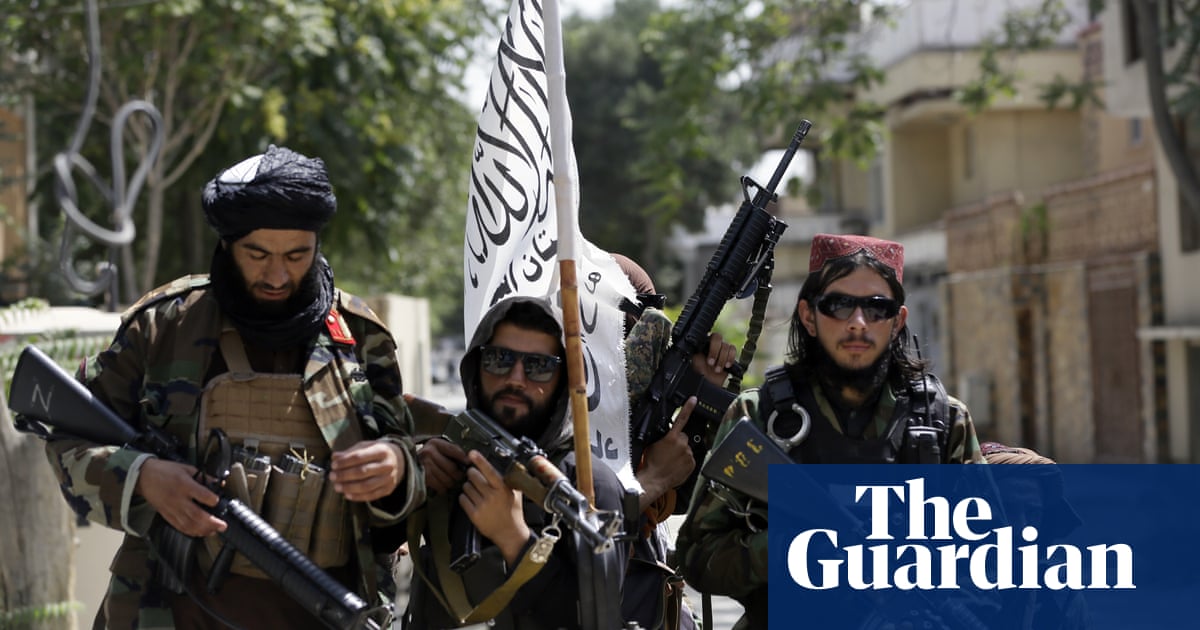
Show caption Taliban fighters patrolling the streets of Kabul on Thursday. Photograph: Rahmat Gul/AP Afghanistan Why not all Islamist extremists are buoyed by the Taliban’s victory Analysis: deep faultlines, especially with Isis, may counter Afghanistan’s propaganda advantage for jihadists Jason Burke Fri 20 Aug 2021 17.38 BST Share on Facebook
Share on Twitter
Share via Email
Few doubt that the Taliban victory in Afghanistan will give violent Islamist extremists across the world a historic boost, encouraging them in their campaigns to overthrow and replace local regimes – but it has also revealed the deep faultlines that have weakened the jihadist movement in the past decade.
Sunni militants in the Middle East and beyond have already made clear they believe the Taliban takeover of Afghanistan vindicates their own strategies and ideology. Coming just weeks before the 20th anniversary of the 9/11 attacks, the events in Kabul have a powerful resonance. Many statements have been jubilant.
But there has been one notable exception among jihadist groups: the Islamic State (Isis), which considers the Taliban “apostates” because of their willingness to negotiate with the US, their apparent pragmatism and their failure to apply Islamic law with sufficient rigour.
Such criticism is not new – the Taliban faced similar attacks in the 1990s when the movement had contacts with the UN and western governments – but now it comes after fierce battles in Afghanistan between the local Isis affiliate and Taliban forces. On Thursday after followers spread vitriolic criticism on social media, Isis issued its first official statement on the matter, accusing the Taliban of being bad Muslims and agents of the US.
The contrast with the views of almost all other violent Islamic extremists is stark. On Wednesday, fighters from al-Qaida’s affiliate in Yemen in the central governorate of Al Bayda and southern province of Shabwa celebrated the Taliban’s return to power with fireworks and gunfire. In a statement, the group, known as al-Qaida in the Arabian Peninsula (AQAP), congratulated the Taliban while reaffirming its own commitment to overthrowing local rulers through violence.
“This victory and empowerment reveals to us that jihad and fighting is the only realistic way that is compliant with Islamic law to restore rights and expel the invaders and occupiers,” the group said in a statement translated and published by SITE Intelligence group.
Dozens of other statements issued by media associated with al-Qaida’s leadership, and individual supporters, broadcast the same message: that the Taliban’s victory was a major achievement and an example for jihadists everywhere.
Jubilant members of Hayat Tahrir al-Sham in the Idlib region of Syria on Friday, celebrating the Taliban’s victory in Afghanistan. Photograph: Omar Haj Kadour/AFP/Getty Images
Similar sentiments were expressed by leaders and senior clerics of Hayat Tahrir al-Sham, a Syrian-based group that formally split from al-Qaida in 2016 and now dominates the north-western province of Idlib. One senior member of the group described the Taliban takeover as “a victory for Muslims, a victory for the Sunnis, a victory for all the oppressed.”
The Pakistani Taliban – or the Tehreek-e-Taliban Pakistan (TTP) – which is based in frontier regions in neighbouring Pakistan and has close links to at least one faction of its Afghan namesake, described recent events as a “victory for the whole Islamic world”.
Osama bin Laden struck the US directly in part because he was convinced that the superpower would crumble if attacked, as had the Soviets in Afghanistan. Any new perception of weakness is likely to encourage fresh attacks.
Many jihadists have seen an opportunity to undermine rival Islamist groups that have pursued power through the ballot box, even though many of these, too, welcomed the Taliban takeover. “As for the game of democracy and compromise and pacifism, it is a deceptive mirage, a fleeting shadow, and a vicious circle that starts with a zero and ends with it,” AQAP said.
The divisions among extremists over the Taliban’s success reveal major strategic differences, pitting those who believe in unmitigated violence, extreme commitment to doctrinal purity and apocalyptic predictions against others who have shown greater pragmatism in recent years.
Bin Laden told followers to avoid unnecessary deaths among Muslims, and to be more careful of their public image. The al-Qaida founder even contemplated changing the group’s name as part of an overall rebrand, so concerned was he that its reputation had been tarnished by the killing of fellow Muslims.
Since his death in 2011, his successor, Ayman al- Zawahiri, has eschewed long-range attacks on the west in favour of a strategy of expansion through building ties with local communities in places such as Yemen or Mali. However, he remains committed to a never-ending war against unbelievers and apostates, led by a radical vanguard, until the establishment of a caliphate.
That al-Qaida should back the Taliban is unsurprising. Maintaining an alliance with the group has been key to its survival for 25 years, and will be even more important now.
Hayat Tahrir al-Sham, which has fought Isis in Syria, has recently become more pragmatic, with its leader, Mohammed al-Jawlani, attempting a transition from violent extremism to a hybrid form of civilian government and insurgency, albeit marked by continuing violence. The group now in effect controls the last opposition stronghold in Syria, appears to have downgraded the objective of building a radical religious state in the country, and has sought engagement with international actors. Again, this aligns it with the Taliban.
Isis continues to represent the most extreme trend in the Islamic militant movement and remains entirely committed to its own brutal ideology. Though some individual affiliates or “provinces” have moderated their tactics, this does not seem likely to change soon, as shown by their reaction this week.
These deep internal divisions may counter some of the propaganda boost provided to Islamic militants everywhere by the Taliban victory in Afghanistan, and could mean the takeover may not immediately translate into a wave of new recruits and attacks. This, however, is scant consolation.






